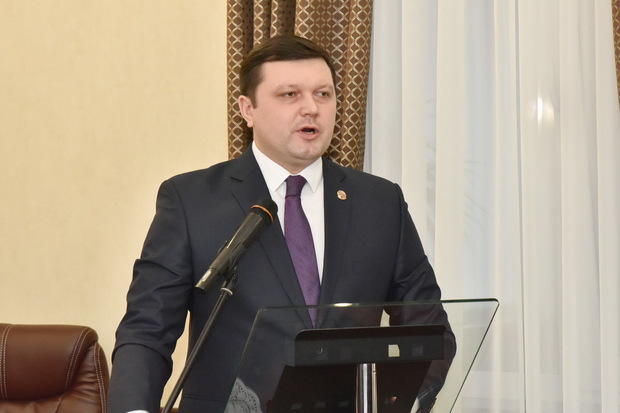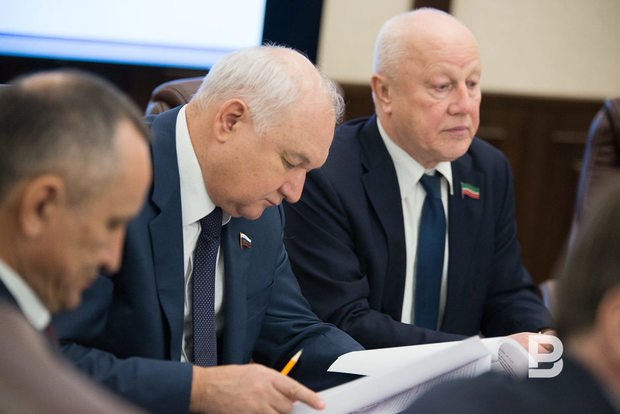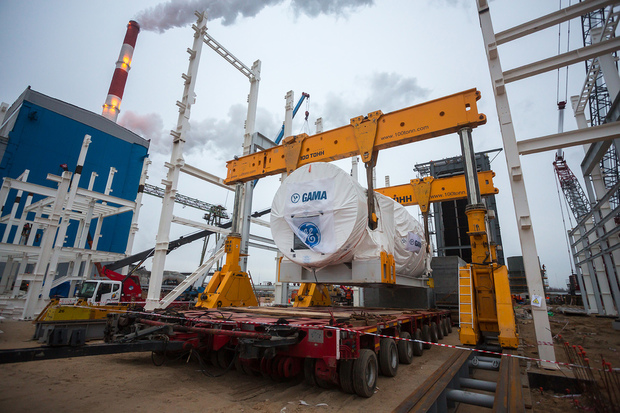Why is energy efficiency à la Kazan not suitable for small cities?
Tatarstan authorities have big ideas of half a billion rubles on developing energy-efficient technologies for Ammonia and Alabuga
Tatarstan continues to exist in conditions of energy deficit, despite the modernization of capacities and energy efficiency programme, this year it has amounted to more than 7 billion kWh. To cover it, the Republic continues to upgrade the equipment that is 'physically and morally obsolete'. The Republic is struggling with the deficit by reducing the energy consumption by the population, however, recognizes that the municipalities do not have money for that. Deputies of the State Duma promise to use federal funds. Details – in the report of Realnoe Vremya.
Population will repair houses until 2043 out of their own pockets
One of the ways to reduce the energy deficit – the resource saving programme. It implies the reduction of energy consumption by businesses and individuals in apartment buildings. In 2015, on energy saving within the framework of the overhaul Tatarstan spent more than 3.6 billion rubles, most of which went to the repair and insulation of facades of houses and roof repairs.
As Deputy Minister of Construction, Architecture and Housing of Tatarstan Aleksey Frolov reported, now the main goal within this programme is to complete the installation of the nodes of weather control, which now only 40% houses are provided with, and 80% of houses – with individual metering equipment. Naberezhnye Chelny was presented by Frolov as an example of saving – it is a city that is 100% transferred to an automated metering with individual thermal points (ITP). 'Thermal energy saving is the most effective way to save funds of citizens,' he told.

From 2008 to 2015, Tatarstan spent 43 billion rubles on energy saving activities, for the most part it is money of house owners, as well as municipalities and the Housing and Utilities Fund. More than 12.8 thousand houses were repaired, and this year the programme will continue, more than 800 houses are planning to be repaired. But all apartment houses of Tatarstan will be repaired in 30 years by 2043, warned Frolov. However, according to him, the programme is based only on apartment owners money, and if the government will allocate 1.20 ruble from the budget on every ruble of apartment owners, the programme will move at an accelerated pace. Earlier it was reported that the medium-term need for the reorganization and construction in the utility industry is about 100 billion rubles.
Kazan saves billions of rubles due to energy saving, but remains an outsider on energy efficiency
The situation in Kazan differs from the situation in the municipalities of the Republic. According to the director of municipal unitary enterprise 'Kazan energy service centre' Evgeny Chekashov, since 2010 the company holds the energy saving and budget efficiency programme in Kazan, during this time the programme 'Effective quarter' was launched, the first in the Volga Federal district energy service contracts were signed, the nodes of metering weather control have been installed, in all budgetary institutions metering equipment have been installed. For 5 years, 193 thousand Gcal were saved, or 241 million rubles, reported Chekashov. 'The effect on residential funds only from thermal energy amounted to 1.75 thousand Gcal in 2010-2015 – it is more than 2 billion rubles,' said Chekashov.

As the money allocated for capital repairs are insufficient for equipping the houses with weather control nodes, the municipality took a five-year loan at 409 million rubles for these purposes from the Bank of Moscow. More than 700 nodes have been purchased for this money, another 1 640 are left. 'In these difficult conditions we have to find the funding and fulfill the programme,' he admitted. Despite the announced measures, earlier it was reported that Kazan was only 14th in the list of energy efficient cities of Tatarstan.
The crisis has closed the access for municipalities to loans for energy saving
'Not all municipalities are able to attract such resources. How to attract smaller settlements?' objected deputies. As it turned out, there is no such opportunity. 'The project in Kazan was 'launched' so effectively due to the fact that the funds under the percentage under which we received it (10.55%) only works with the Bank of Moscow. While this percentage cannot be changed unilaterally,' admitted Frolov.
In the current conditions, he suggested that the municipalities would use energy service contracts. The point is, they attract an investor to finance, the expenses of whom is reimbursed from the savings funds received after the implementation of energy-saving technologies. Thus, there is no necessity to obtain a loan for the project, and the investments are provided, as a rule, by an energy service companies themselves.

Another solution was proposed by Deputy of the State Duma from Tatarstan Ildar Gilmutdinov. He said that the Russian government has created a fund that at 60% funds the engineering infrastructure in small towns with a population up to 250 thousand people.
Frolov said that the Republic is aware of the fund and in order to participate in the programme Tatarstan collected bids at 3 billion rubles. 'Unfortunately, there is a condition that after attracting the investment we need to give infrastructure in concession. But we transferred it to the owners, in 2005-2008, but the owners can't participate, only municipal property,' he explained. However, the Republic has several applications that are now being prepared to send to Moscow. They are, first of all, Elabuga with its special economic zone, Mendeleevsk with the mega-project Ammonia. 'Our aim is to attract half a billion for this,' said the official.
The energy deficit in Tatarstan is one-third of the consumption
While reducing of energy consumption Tatarstan continues working on the modernization of its power capacities. Now in Tatarstan there are four major producers of electric and thermal energy, they are Generiruyaschaya company, TGK-16, Urrusinsk GRES, Nizhnekamsk thermoelectric plant. In total, in 2015 they generated more than 20 billion kWh of electricity, which is by 5.8% less than last year, and almost 33 thousand Gcal of thermal energy, said the head of energy administration of the Ministry of Industry and Trade Guzel Sadriyeva. At the same time, in 2015 the energy consumption was 27 billion kWh. Thus, the deficit reaches 7 billion kWh and is caused by 'physical and moral deterioration of generating equipment'.
The capacity deficit for the Republic — commonplace: in 2014 the programme was developed until 2020, which implies the introduction of energy saving facilities based on steam-gas turbine technologies, optimization of parameters of technological processes, reduction of losses when transmitting electricity and heat, etc.

The technology roadmap on the launch of power capacity is based on several major investment projects: for example, in 2014 a new unit at TPS-2, also a project on launching of new capacities at Kazan TPS-3 TGK-16 has been started, and in 2017 it is planned to commission the gas-turbine plant at 338 mW, the reconstruction of Nizhnekamsk TPS, and in 2 years new energetic blocks of Kazan TPS-1 at 230 mW will be launched. Also the modernization of Urussinsk and Zainsk TPS have being planned.
In 2015, for implementation of the programme of energy saving the industry allocated 77 billion rubles, and the economic effect amounted to 645 million rubles. The measures helped to increase the installed capacity of the power system of the Republic from 6.8 GW to 7.3 GW. But the working capacity is 3.5 GW now, at the peak of work – 4.3 GW. Fuel consumption per unit production of electricity reduced by 2.4%, share of loss in energy transfer at the standard of 8% in the Republic is 7.2%, said Sadriyeva.